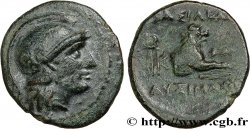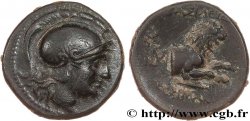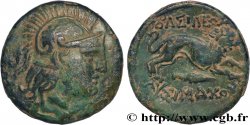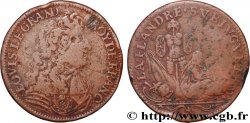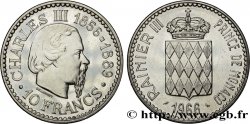bgr_731039 - THRACE - THRACIAN KINGDOM - LYSIMACHOS Unité
120.00 €(Approx. 139.20$ | 104.40£)
Quantity
Add to your cart

Type : Unité
Date: 287/286 - 281/280 AC.
Mint name / Town : Amphipolis, Macédoine
Metal : copper
Diameter : 20 mm
Orientation dies : 5 h.
Weight : 4,81 g.
Rarity : R1
Coments on the condition:
Monnaie sur un flan centré, éclaté à 3h. Revers agréable. Usure régulière. Patine vert foncé
Catalogue references :
Obverse
Obverse legend : ANÉPIGRAPHE.
Obverse description : Tête d'Athéna à droite, coiffée du casque attique à cimier et à aigrette.
Reverse
Reverse description : Lion bondissant à droite ; au-dessous, un fer de lance et une branche.
Reverse legend : BASILEWS// LUSIMACOU// (Mo)
Reverse translation : (du roi Lysimaque).








 Report a mistake
Report a mistake Print the page
Print the page Share my selection
Share my selection Ask a question
Ask a question Consign / sell
Consign / sell
 Full data
Full data